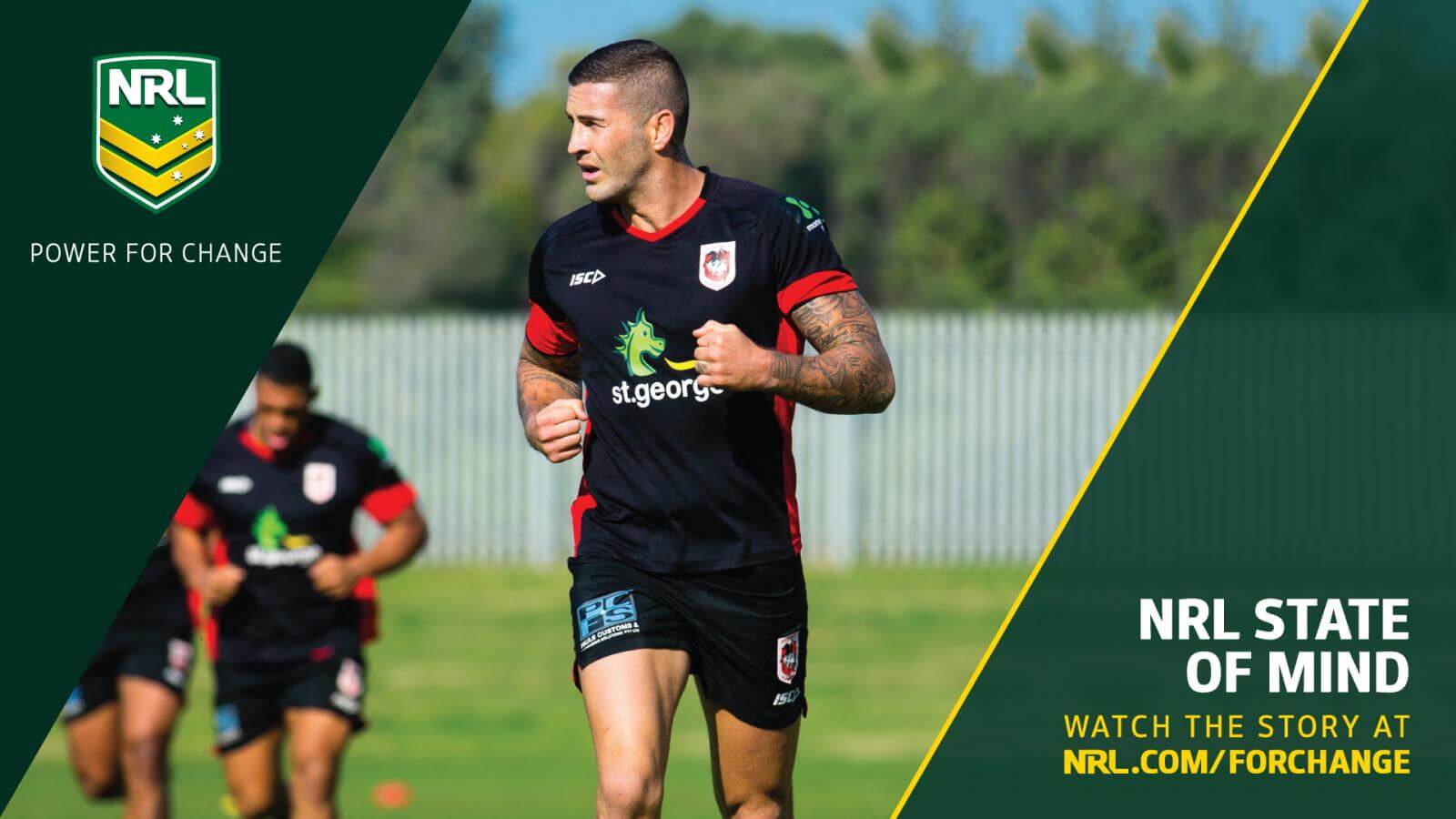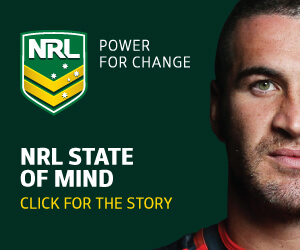
NRL adds power for change to its State of Mind programme

The NRL has launched another drive in a series of community campaigns to promote positive mental wellbeing. The power for change campaign that’s supported by expert health partners including Le Va, features NRL players, referees and clubs.
St George Illawarra NRL player and State of Mind ambassador Joel Thompson headlines the campaign, which focusses on the State of Mind programme and how it’s being delivered within grassroots clubs throughout local communities.
Joel is one of 30 NRL State of Mind ambassadors to date, with 13 new faces joining the crusade this year alone, including NRL referees Matt Cecchin and Ben Cummins.
“I’ve been part of the State of Mind programme since the start and I’ve come to realise how important education around the topic of mental wellbeing is,” Thompson said.
“When you see the difference this programme makes within clubs and the wider community, you couldn’t be prouder to be a part of the NRL and what they are doing.”
NRL Head of Governemnt and Community Relations, Jaymes Boland-Rudder said the effort from the ambassadors in raising awareness about mental health and providing useful programmes to endorse positive mental wellbeing in the local clubs has grown significantly over the past few years.
“Mental wellbeing is an issue that most of us will face at times throughout life and as a sport with a significant voice within communities, we have a responsibility to support and educate not only those connected within our game, but also those around us.
“Joel’s story and the stories of many others help to normalise that it’s ok to put your hand up and reach out for help.”
The State of Mind Grassroots programme has been delivering promising results with 54% of people more confident to support a peer after participating in the programme and 100% of people increasing their knowledge of the signs and symptoms of mental health.
The programme also highlights the various causes of mental ill health which include, but are not limited to:
• Early life experiences including the loss of a loved one, bullying and violence.
• Individual factors such as problem solving skills.
• Current circumstances including unemployment and relationship breakdown.
• Biological factors such as the prevalence of mental illness within some families.
To view the power for change campaign as told by Joel Thompson, click here.







